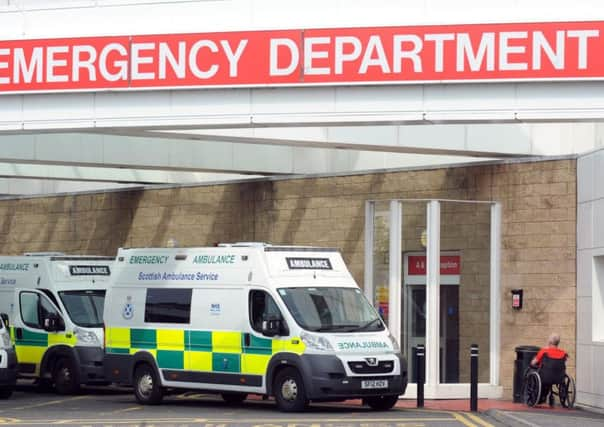The NHS’s effect on climate change may surprise you – Dr Catherine Calderwood


Our climate is always in the news. In Scotland, a climate emergency has been declared. Whether it is forest fires in Indonesia or Australia, the melting of the polar ice caps, or flooding here in the UK, the changing climate is affecting us all and our health in particular. So much so that the medical journal, The Lancet, has described climate change as “the biggest global health threat of the 21st century”.
This is a complex issue. Greenhouse gases affect our climate and weather patterns making heatwaves, droughts, and wildfires more likely, though unpredictable.
Advertisement
Hide AdAdvertisement
Hide AdWorldwide changes in sea levels alter the capacity of land and seas to sustain the food chain. All of which will directly or indirectly affect our human and planetary health.
Globally we can expect increasing under-nutrition, changes in the number and spread of certain types of water-borne disease, and increased risk of insect and animal-borne diseases. Changes in air quality impact on heart and respiratory disease; and let’s not forget the impact on the mental wellbeing of those whose everyday lives are affected by flooding, fires, or drought.
Environmentally friendly anaesthetic gas
In Scotland, we cannot escape the fact that we have contributed to the causes of climate change over the years, and we are not immune to the effects it will have on the health of Scottish people. As a result, the NHS will have to care for those experiencing climate change-related health problems whilst also having to change how it works to minimise further environmental damage. So, what are we doing to meet these challenges?
The first thing to say is that the NHS in Scotland has not been idle. We have been working for several years to be more effective in how we use the resources that release the greenhouse gases at the heart of climate change, and there are examples of initiatives such as using more environmentally friendly anaesthetic gas, the swapping of equipment between health boards to prevent it going to landfill, waste segregation in operating theatres to streamline its management, and reducing environmental harm associated with the use of pharmaceuticals.
We already know that how we use energy in the NHS, how our staff and patients travel to provide or receive care, how we manage the waste we create and dispose of, even the drugs and health care supplies that we purchase. All contribute to our “carbon footprint”. Could we do more?
Health-related travel
Recent data estimates that that in any given day, one-in-20 road users were on journeys associated with health or social care.
Across the NHS and social care system, patient, visitor and staff travel (including getting to and from work) accounted for 15.5 per cent of the total CO2 released. Such road use may not be directly associated with NHS and social care delivery, but how we organise our pattern of care does influence how much travel patients, their families and friends, and those caring for them have to undertake.
In the spring, NHS Scotland will publish a new Sustainable Development and Climate Change Strategy which will explain how it will move towards becoming net zero in its carbon use by 2045. This will be challenging, but it is a challenge that the whole of the service has accepted needs to be met.
Advertisement
Hide AdAdvertisement
Hide AdWe face a climate emergency that will require all of us to make our contribution to limiting those consequences of climate change that we can, and adapting to those that cannot now be changed.
That commitment – and how this will also improve the health of our population – is what I want the delegates at the UN Climate Change Conference in Glasgow to hear loud and clear.
Catherine Calderwood is Scotland’s Chief Medical Officer and she is grateful to Phil Mackie, lead consultant, Scottish Public Health Network, for his contribution.
